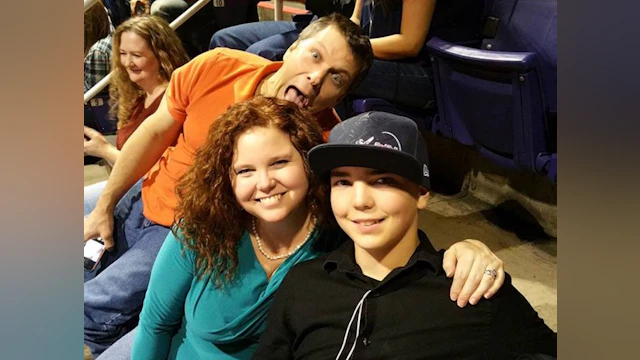February 13, 2018 - If you’re a parent who has lost a child to suicide, I wish I could hug you and make the pain go away instantly, but unfortunately nobody can do that. I want to tell you that one day you will wake up and realize the ache you feel is completely gone, but that wouldn’t be honest of me. What I can tell you, as someone who lost her teenage son a year and a half ago, is that the ache does – to an extent – dissipate.
In the beginning, you feel like you’re drowning. As time passes, the waves of grief will be a little smaller, then smaller still. I will forever grieve my son and the life he was supposed to have – along with the life I was supposed to have with him – but the days I feel completely engulfed by pain are fewer than before.
Frankly, I don't want the ache to disappear; the grief I feel is proof that I loved my son deeply and unconditionally. I try to focus on the time I had with him, but honestly it doesn't always work.

Sometimes it does, though.
For other parents who have lost a child to suicide, here are nine suggestions I’d like to share:
- Be kind to yourself. You have suffered an incredible loss: possibly the worst loss a person can experience. It will be incredibly difficult. You will feel many things. This is normal. You may also feel like you are going crazy, but you are not.
- Be patient. The healing process takes time. Getting to a better place takes work. I promise it is worth it.
- Join a support group. If you can't join an in-person group, find a supportive one online. Losing a child is a special grief. Those who haven't lost a child will try to understand, but they will be unable to. If the group you join does not feel right for you, give it a chance for three weeks, then leave and find a different one.
- Seek one-on-one counseling. Having someone you can talk to about anything, especially your child, can be a huge comfort. Many counselors will listen without judgment help you navigate the peaks and valleys of grief. You may need to visit a few different counselors to find the right one, but when you do, it can have a profound impact on you, your loved ones and your family.
- Set boundaries. People may say a lot of stupid things in response to a suicide loss. Or, they may just be things that don’t resonate for you, personally. (Two I personally can’t stand are, "God will not give you any more than you can handle," and, “Everything happens for a reason." Nowhere in the Bible does God promise he will not give you more than you can handle.) Certainly, if someone is being negative and telling you to “just get over it,” or anything else that is hurtful or unhelpful, it is perfectly okay to speak up. Tell them you know they mean to be helpful, but that what they are saying is not.
- Understand your personal grief is different from anyone else's. What someone else is going through, or has gone through, may not be what you are experiencing, and that is okay. Some things may be helpful for one person, but not for you. That is absolutely normal. Do what is right for you.
- Be kind to yourself and be patient. Get enough rest and make sure you are eating. I know this sounds counterintuitive because you may not have an appetite and your sleep may be disturbed; but taking care of yourself really can help with the grief.
- Understand that what happened is not your fault. You may blame yourself and wonder what you could have done differently. I still do that to this day. For a long time, I constantly played the night of my son’s death over and over in my head. I constantly thought of different scenarios that might have saved him. These thoughts caused me more pain and didn't change a thing. I know you're probably going to have these thoughts. Every parent I have met who has experienced this type of loss has had them. I implore you to keep reminding yourself it is not your fault.
- Last but not least: please let people help you. Don't push people away. If you are married, be there for each other. I typically isolate during times of great pain or sadness, but this can make the grief so much worse. Many times, my husband wanted to help, and I went to my room and grieved alone. Sometimes I still need to do this, but the times I’ve let my husband in have been a huge comfort. Never forget that there are people who love you and truly want to help.
